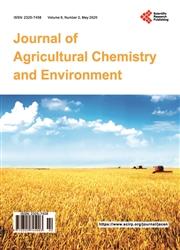Bioactive Compounds and Antifungal Activities of Extracts of Lamiaceae Species
引用次数: 4
Abstract
Origanum vulgare L. (oregano) and Rosmarinus officinalis L. (rosemary) are vegetal species belonging to the family Lamiaceae, popularly known as oregano and rosemary. Aromatic plants are used in the treatment and prevention of diseases and in the culinary as functional food in the preparation and conservation of foods. In the chemical composition of oregano and rosemary are present bioactive compounds with antimicrobial, antioxidant and flavoring effect. Several reports in the literature have presented the chemical composition and biological activity of the essential oils of oregano and rosemary. However, few studies have been carried out regarding the chemical composition and biological potential of the aqueous and ethanolic extracts of Origanum vulgare L. and Rosmarinus officinalis L. Evidencing a need to investigate the chemical composition and antifungal activity of these extracts. The objective of the study was to evaluate the bioactive compounds and antifungal activity of the aqueous and ethanolic extract of Origanum vulgare L. and Rosmarinus officinalis L. The aqueous and ethanolic extracts of Origanum vulgare L. and Rosmarinus officinalis L. present in the chemical composition phenolic acids and flavonoids. The antifungal test of the aqueous and ethanolic extract of Origanum vulgare L. and Rosmarinus officinalis L. presented antifungal potential against Candida globosa, Cryptococcus laurentii, Trichosporum assai, Rhodotorula sp., Candida albicans, Kodamaea ohmeri, Saccharomyces and Geotrichum. According to the results obtained in this study, it was concluded that the ethanolic extract of oregano and rosemary present antifungal activity against several yeasts tested, thus proving that these plant species must be carefully evaluated, aiming at a potential for use as an antimicrobial agent.夹竹桃科植物提取物的生物活性化合物及其抗真菌活性
牛至(牛至)和迷迭香(迷迭香)是Lamiaceae科的植物物种,俗称牛至和迷迭香。芳香植物用于治疗和预防疾病,并在烹饪中作为功能性食品用于食品的制备和保存。牛至和迷迭香的化学成分中存在具有抗菌、抗氧化和调味作用的生物活性化合物。文献中的一些报道介绍了牛至和迷迭香精油的化学成分和生物活性。然而,很少有人对牛至和迷迭香的水提取物和乙醇提取物的化学成分和生物潜力进行研究。这表明有必要研究这些提取物的化学组成和抗真菌活性。本研究的目的是评价牛至和迷迭香的水提取物和乙醇提取物的生物活性化合物和抗真菌活性。牛至和Rosmarinus officinalis的水提取物或乙醇提取物的化学成分为酚酸和类黄酮。牛至(Origanum vulgare L.)和迷迭香(Rosmarinus officinalis L。根据这项研究的结果,得出的结论是,牛至和迷迭香的乙醇提取物对几种测试的酵母具有抗真菌活性,因此证明必须仔细评估这些植物物种,以确定其用作抗菌剂的潜力。
本文章由计算机程序翻译,如有差异,请以英文原文为准。
求助全文
约1分钟内获得全文
求助全文

 求助内容:
求助内容: 应助结果提醒方式:
应助结果提醒方式:


